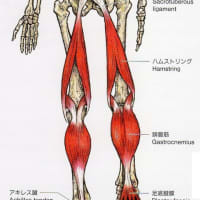http://www1.odn.ne.jp/xenom/gohou.box/gohou1.html
(A)注意すべき不可算名詞:a(n) を付けることはできず、複数形もない。
例:○ (a piece of or some) advice × an advice, advices
advice(忠告)
advice
[ədváis]
名詞
忠告, 助言, 意見
報道, 報告,[商業]通知, 案内.
熟語
follow one's own advice
自分の考えに従って行動する.
on a person's advice
人の勧告に従って.
follow (only) one's own advice
独善的な考えで行動する
to act upon one's advice―follow one's advice―take one's advice
忠告に従う - 斎藤和英大辞典
to take one's advice―follow one's advice
助言を容れる - 斎藤和英大辞典
to listen to advice―follow one's advice
忠告を聴く - 斎藤和英大辞典
1.Mary won't listen to her friend's advice.
メアリーはどうしても友達の忠告を聞こうとしません。
2.He would not listen to my advice.
彼は私の忠告をどうしても聞こうとしなかった。
3.Why don't you listen to his advice?
彼の忠告を注意して聞いたらどう。
4.He wouldn't listen to my advice.
彼は私の忠告に耳を貸そうともしなかった。
advice
[ædváis]
[名]
1忠告, 助言, 勧告;(医者の)診断;(弁護士の)鑑定
2報告, 報道, 情報
3〔商〕通知, 通知状, 案内
1.I'll give you a pieces of advice.
一言忠告をします。
2.I have one final piece of advice related to handshakes: Remember to smile.
握手に関連して最後に1つアドバイスがあります-笑顔を忘れずに。
3.Let us give you a piece of advice.
私たちは君に一つ忠告したい。 [M]
4.The old man gave me a useful piece of advice.
老人は役に立つ忠告を1つしてくれた。
5.Let me give you a price of advice.
一言忠告しておきたいんだ。
6.He gave a good piece of advice.
彼は良い忠告を一つしてくれた。
7."Say, you, the lady over there." "Eh?" "Could you give me a bit of advice?
「なあ、そこの姉さん」「え?」「ちょっと相談に乗ってくれないか?」
8.I visited her with a view to giving a piece of advice.
私は忠告をしようと彼女を訪ねた。
9.Let me give you a piece of advice.
一言苦言を呈したい。
10.Let me give you a bit of advice.
ひとこと君に忠告させて欲しい。 [M]
behavior(ふるまい)
behavior
[bihéivjər]
名詞
行儀, 品行
態度, ふるまい
(機械の)動き具合.
派生
behavioral
形容詞
[-rəl]
行動の(に関する)(~ science 行動科学).;
behaviorism
名詞
行動主義.;
behaviorist
名詞
行動主義者.;
熟語
be on one's good [best] behavior
神妙にしている.
behavior
[名]
1振舞い, 行為
2行儀;態度
3〔心〕(研究対象としての)行動
4(物の)反応, 動き
5(機械などの)運動, 働き
━[形](=behavioristic /-ístik/)行動主義的な
参考語彙
behaviour
[bihéivjər]
熟語
during good behavior
不都合な行為のない限りは
on one's best[or good]behavior
(保護観察中)謹慎して;できるだけ行儀よくして
派生
behavioral
[形]行動の, 生態の
behavioralism
[名]行動科学主義[研究]
behaviorism
[名]〔心〕行動主義[米国の心理学者J.B.Watsonが創唱]
behaviorist
[名]行動主義心理学者
conduct(行為)
conduct
[kɑ́ndəkt;-dʌkt-ɔ́-]
名詞
行為, 品行
指導, 指揮
取扱い, 管理
趣向, 脚色.
品詞の変化
自動詞
行う, ふるまう (~;);導く;指導[指揮]する;処理[経営]する;(電気を)伝える;バスの車掌として働く.;
派生
conduction
名詞
(熱などの)伝導.;
conductive
形容詞
conductivity
名詞
[kɑ̀ndʌktívəti-ɔ̀-]
伝導性.;
conduct
[名] /kándʌkt/
1行為, 品行, 振舞い
2経営, 管理, 運営
3(舞台などの)処置法;(筋の)脚色
4指導, 案内
━[動] /kəndʌkt/(他)
1〔事業など〕を経営する, 管理する, 〔業務〕を遂行する
2〔楽団・軍隊など〕を指揮する
3…を案内する
4〔理〕〔熱・電気・音など〕を伝える
5(+-self)身を処する, 振舞う
━(自)
1(道などが)通じる, 至る〈 to〉
2(楽団を)指揮する
3伝わる, 伝導する
派生
conductance
[名]〔電気〕コンダクタンス, 伝導係数
1.I am responsible for his own conduct.
私は、自分の行動に責任がある。
2.Your conduct is perfectly legal.
君の行動は全く合法的だ。 [M]
3.The boy was awarded a prize for good conduct.
その少年は善行に対して賞を与えられた。
4.I blush to think of such conduct.
そんなことをするなんて考えただけでも恥ずかしい。
5.Such conduct would subject the offender to a heavy penalty.
そのような行いをすれば違反者は重罰を受けるだろう。
6.It is not men's faults that ruin them so much as the manner in which they conduct themselves after the faults have been committed.
生まれながらの紳士を特徴づけるのは、何を身につけているかということよりも、むしろどのようにそれを身につけているかということである。
7.Granting that he was drunk, his conduct cannot be excused.
酔っていたとしても、彼の行為は許せない。
8.Everyone of us is responsible for his own conduct.
私達は誰でも自分の行動に責任がある。
9.I can't guess the reason for his conduct.
彼の行為の理由は推測できない。
10.His conduct admits of no excuse.
彼の行動には弁解の余地がない。
damage(損害)
damage
[dǽmidʒ]
名詞
損害, 損傷
損害賠償(金)
[Spoken-English]費用.
品詞の変化
他動詞
害する, 傷つける.;
damage
[dǽmidʒ]
[名]
1損害, 損傷
2(口)費用, 代価, 勘定
3(damages)〔法〕損害賠償金
━[動](他)〔もの〕に損害[損傷]を与える;〔体面・評判など〕を傷つける
派生
damageable
[形]
damageability
[名]
damaged
[形]損傷した;俗酔った
1.The flood did great damage to the crops.
洪水が、作物に大損害を与えた。
2.The flood caused a great deal of damage to the crop.
その洪水で作物は莫大な被害を受けた。
3.A severe typhoon has done much damage to property.
猛台風が財産に被害を与えた。
4.The earthquake in Hokkaido caused extensive damage.
北海道の大地震は大きな被害をもたらした。
5.There was no damage to the office, or workers, and we're in business as usual.
社屋や従業員に被害はなく、平常通り営業している。
6.The damage will cost us a lot of money.
被害額は相当なものになるだろう。
7.The government compensated the farmers for the damage to the crops.
政府は作物が受けた被害に対して農民に補償した。
8.We estimated the damage at 1000 dollars.
私達はその損害を1000ドルと見積もった。
9.The heavy rain brought the flood, causing damage.
大雨は洪水となって被害を与えた。
fun(楽しみ)
harm(害)
fortune(運)
luck(運)
work(仕事)
homework(宿題)
music(音楽)
progress(進歩)
weather(天候)
1.Staying home isn't fun.
家にいるのは楽しくない。
2.It's a lot of fun making people laugh while giving speech.
演説中に人を笑わせることはとても楽しいことです。
3.It is fun for me to swim.
泳ぐことは私にとっておもしろいです。
4.It is fun to swim in the sea.
海で泳ぐのは面白い。
5.Let's have some fun.
楽しくやりましょう。
6.I hope you are having fun.
楽しくやっているのでしょう。
7.Time goes by quickly when you're having fun.
楽しんでいるときは時の経つのがはやい。
8.Drawing is a lot of fun; it helps me to relax.
絵を書くのはとても面白いし、リラックスする。
9.We had lots of fun at the picnic.
ピクニックに行って、とても楽しかった。
10.Like fun he went there.
まさか!彼がそこへ行ったはずがない。
weather
[wéðər]
名詞
天気, 天候
荒天.
品詞の変化
形容詞
風上の[に向った].;
他動詞
風雨にさらす;外気に当てる, 乾かす;(岩石を)風化させる;[海事航海]の風上を走る;(困難などを)切抜ける.;
自動詞
外気に当って変化する, 風化する.;
派生
weatherability
名詞
風化[風雨]に抗すること, 耐候性.;
熟語
in all weathers
どんな天候でも.
keep one's [a] weather eye open
油断なく見張っている (for).
make heavy weather of
の難儀に会う.
under the weather
体の具合が悪くて.
weather
[wéðər]
[名]
1天気, 天候
2荒れ模様, 風雨
3(the weather)天気予報
4(通例weathers)人生の浮き沈み, (運命の)移り変わり
━[動](他)
1…を風雨に当てる;乾かす
2〔地質〕〔岩石〕を風化させる
3〔あらし・危険など〕を切り抜ける
4〔海〕…の風上を通る
5〔建〕…に傾斜をつける
━(自)
1(外気で)変化する
2風化する
3切り抜ける
4外気に耐える
━[形]〔海〕風上の
熟語
dance and sing all weathers
時勢に順応する
drive with the weather
風波のままに漂う
go into the weather
風雨の中へ出て行く
in all weathers
どんな天気でも;逆境のときも順境のときも
in the weather
戸外で;風雨にさらされて
keep the weather of ...
(1) …の風上にいる(2) …を牛耳る
King's[or Queen's, royal]weather
英(儀式の日の)快晴
make good[bad, foul]weather
しけにあって揺れない[揺れる]
make heavy weather of ...
〔小事〕を大げさに考える
make heavy weather with ...
…で四苦八苦する
under the weather
口(1) 病気で, 元気がなくて(2) 酔っ払って
weather permitting
天気がよければ
weather the storm
暴風雨を乗り切る
weather through
切り抜ける
派生
weathered
[形]風雨にさらされた;(木材が)乾燥した;(木材を加工して)年代を経たように見せかけた;(岩石が)風化した;〔建〕傾斜させた
weathering
[名]〔地〕風化(作用);〔建〕水垂れ[排水の傾斜]
weatherly
[形]〔海〕(船が)風上に詰めて走ることのできる
1.What marvelous weather.
何てすばらしい天気だろう。
2.The blossoms expand under the influence of the weather.
花は天気の影響を受けて開く。
3.Generally saying weather was calm last year.
一般的に言って去年は気候が穏やかだった。
4.As the weather had cleared, the children being to play baseball again.
雨が上がったので、子供達はまた野球をやり始めた。
5.The paint is peeling off the weather-beaten wall.
雨に当たってペンキがはげている。
6.The weather bureau says it will rain tonight.
気象庁は今晩雨が降ると言っている。
7.Environmental pollution is causing abnormal weather conditions.
環境汚染は、異常な気象状況を引き起こしている。
8.Spring brings mild weather after the cold winter.
寒い冬の後、春は穏やかな天候をもたらす。
9.This meat stays good in cold weather.
寒い天候でこの肉は悪くなっていない。
10.Terrible weather.
ひどく悪い天気。
information(情報)
news(知らせ)
(注:knowledge(知識)と interest(興味)は修飾語句が付くと a(n) が付く:
例 a (good) knowledge of ~)
http://www.definitions.net/
定義を調べるサイト 辞書
1.What does it mean?
それ、どういう意味?
2.What does this mean?
これはどういう意味ですか。
3.What does this mark mean?
この印はどういうものですか。
4.What does this kanji mean?
この漢字はどう意味ですか。
5.What exactly does that mean?
それは正確にはどういう事か。
6.What does this word mean?
このことばはどうゆう意味ですか。
7.What does that word mean?
この単語は何を意味しますか。
8.Inferiority complex-what exactly does that mean?
劣等感ーそれは正確にはどういうことか。
9.What does "resident alien" mean?
「居住外国人」とは、どういう意味ですか。
10.What in the world does he mean?
いったいぜんたい彼はどういうつもりなのか。
1.Merely to breathe does not mean to live.
ただ呼吸しているだけでは生きていることにならない。
2.Does that mean you want to break up?
それは我々の関係を終わらせたいということですか。
3.Does this mean you're not coming to help?
結局私を助けにやって来ないの?
1.Listen to the facts relative to the issue.
その問題に関する事実をよく聞きなさい。
2.Relative to overall sales, that of software is insignificant.
売り上げ全体から見れば、ソフトウェアのは重要でない。
3.Supply is relative to demand.
供給は需要に比例する。
4.I consulted him relative to the subject.
私はその問題について彼に助言を仰いだ。
5.The problem quoted isn't one, but there are problems in the reading section that ask you to distinguish relative pronouns from relative adverbs.
引用した問題ではありませんが、関係代名詞と関係副詞の使い分けを問う問題がリーディングセクションにはあります。
6.We have a saying to the effect that a good neighbor is better than a faraway relative is.
よい隣人は遠くの親戚よりよい、という趣旨の格言がある。
What does "relative to" mean?
"相対する"はどういう意味ですか?
Definitions for relative
相対の定義
1.I don't mean to object to your proposal.
君の提案にあえて反対はしない。 [M]
2.What do you mean to say to me?
あなたは私に何を言おうとしているのですか。
3.I usually ride my bike to school. I mean to the office.
たいていは自転車で学校に、いや、会社に行っているよ。
4.Merely to breathe does not mean to live.
ただ呼吸しているだけでは生きていることにならない。
5.I must hasten to add that I do not mean to blame him.
彼を非難するつもりでないことを急いでつけ加えなければならない。
6.He doesn't want me to go, but I mean to.
彼は私が行くことを望まないが、私は行くつもりだ。
7.I didn't mean to hurt you.
君の心を傷つけるつもりはなかった。 [M]
ソース www.kingsoft.jp
8.I'm so sorry. I didn't mean to kick you.
ごめん!蹴飛ばすつもりじゃなかったんだ。
9.I'm sorry, I didn't mean to hurt your feelings.
ごめんなさい、あなたの気持ちを傷つけるつもりなどなかったのです。
10.He is very mean to me.
あの子は私に意地悪するよ。
http://ja.wikipedia.org/wiki/%E3%82%A6%E3%82%A3%E3%83%AA%E3%82%A2%E3%83%A01%E4%B8%96_(%E3%82%A4%E3%83%B3%E3%82%B0%E3%83%A9%E3%83%B3%E3%83%89%E7%8E%8B)
ウィリアム1世(William I, 1027年 - 1087年9月9日)は、イングランド王(在位:1066年 - 1087年)。通称は征服王(William the Conqueror)。ノルマンディー公(ギヨーム2世、在位:1035年 - 1087年)でもあった。イングランドを征服し(ノルマン・コンクエスト)、ノルマン朝を開いて現在のイギリス王室の開祖となった。
ウィリアムは英語読みであるが、むしろフランス語読みのギヨーム(Guillaume)と呼ぶ方がふさわしいだろうという見解もある(彼自身はフランス出身であり、彼自身も周囲の人もフランス語を使っていたので)。彼の墓にはラテン語風にGUILLELMUSと綴られている
インターネットラジオ
http://english.chakin.com/eul-radio.html
海外のインターネットラジオを紹介してます
おすすめサイト 音楽 ラジオ
英語関係
(A)注意すべき不可算名詞:a(n) を付けることはできず、複数形もない。
例:○ (a piece of or some) advice × an advice, advices
advice(忠告)
advice
[ədváis]
名詞
忠告, 助言, 意見
報道, 報告,[商業]通知, 案内.
熟語
follow one's own advice
自分の考えに従って行動する.
on a person's advice
人の勧告に従って.
follow (only) one's own advice
独善的な考えで行動する
to act upon one's advice―follow one's advice―take one's advice
忠告に従う - 斎藤和英大辞典
to take one's advice―follow one's advice
助言を容れる - 斎藤和英大辞典
to listen to advice―follow one's advice
忠告を聴く - 斎藤和英大辞典
1.Mary won't listen to her friend's advice.
メアリーはどうしても友達の忠告を聞こうとしません。
2.He would not listen to my advice.
彼は私の忠告をどうしても聞こうとしなかった。
3.Why don't you listen to his advice?
彼の忠告を注意して聞いたらどう。
4.He wouldn't listen to my advice.
彼は私の忠告に耳を貸そうともしなかった。
advice
[ædváis]
[名]
1忠告, 助言, 勧告;(医者の)診断;(弁護士の)鑑定
2報告, 報道, 情報
3〔商〕通知, 通知状, 案内
1.I'll give you a pieces of advice.
一言忠告をします。
2.I have one final piece of advice related to handshakes: Remember to smile.
握手に関連して最後に1つアドバイスがあります-笑顔を忘れずに。
3.Let us give you a piece of advice.
私たちは君に一つ忠告したい。 [M]
4.The old man gave me a useful piece of advice.
老人は役に立つ忠告を1つしてくれた。
5.Let me give you a price of advice.
一言忠告しておきたいんだ。
6.He gave a good piece of advice.
彼は良い忠告を一つしてくれた。
7."Say, you, the lady over there." "Eh?" "Could you give me a bit of advice?
「なあ、そこの姉さん」「え?」「ちょっと相談に乗ってくれないか?」
8.I visited her with a view to giving a piece of advice.
私は忠告をしようと彼女を訪ねた。
9.Let me give you a piece of advice.
一言苦言を呈したい。
10.Let me give you a bit of advice.
ひとこと君に忠告させて欲しい。 [M]
behavior(ふるまい)
behavior
[bihéivjər]
名詞
行儀, 品行
態度, ふるまい
(機械の)動き具合.
派生
behavioral
形容詞
[-rəl]
行動の(に関する)(~ science 行動科学).;
behaviorism
名詞
行動主義.;
behaviorist
名詞
行動主義者.;
熟語
be on one's good [best] behavior
神妙にしている.
behavior
[名]
1振舞い, 行為
2行儀;態度
3〔心〕(研究対象としての)行動
4(物の)反応, 動き
5(機械などの)運動, 働き
━[形](=behavioristic /-ístik/)行動主義的な
参考語彙
behaviour
[bihéivjər]
熟語
during good behavior
不都合な行為のない限りは
on one's best[or good]behavior
(保護観察中)謹慎して;できるだけ行儀よくして
派生
behavioral
[形]行動の, 生態の
behavioralism
[名]行動科学主義[研究]
behaviorism
[名]〔心〕行動主義[米国の心理学者J.B.Watsonが創唱]
behaviorist
[名]行動主義心理学者
conduct(行為)
conduct
[kɑ́ndəkt;-dʌkt-ɔ́-]
名詞
行為, 品行
指導, 指揮
取扱い, 管理
趣向, 脚色.
品詞の変化
自動詞
行う, ふるまう (~;);導く;指導[指揮]する;処理[経営]する;(電気を)伝える;バスの車掌として働く.;
派生
conduction
名詞
(熱などの)伝導.;
conductive
形容詞
conductivity
名詞
[kɑ̀ndʌktívəti-ɔ̀-]
伝導性.;
conduct
[名] /kándʌkt/
1行為, 品行, 振舞い
2経営, 管理, 運営
3(舞台などの)処置法;(筋の)脚色
4指導, 案内
━[動] /kəndʌkt/(他)
1〔事業など〕を経営する, 管理する, 〔業務〕を遂行する
2〔楽団・軍隊など〕を指揮する
3…を案内する
4〔理〕〔熱・電気・音など〕を伝える
5(+-self)身を処する, 振舞う
━(自)
1(道などが)通じる, 至る〈 to〉
2(楽団を)指揮する
3伝わる, 伝導する
派生
conductance
[名]〔電気〕コンダクタンス, 伝導係数
1.I am responsible for his own conduct.
私は、自分の行動に責任がある。
2.Your conduct is perfectly legal.
君の行動は全く合法的だ。 [M]
3.The boy was awarded a prize for good conduct.
その少年は善行に対して賞を与えられた。
4.I blush to think of such conduct.
そんなことをするなんて考えただけでも恥ずかしい。
5.Such conduct would subject the offender to a heavy penalty.
そのような行いをすれば違反者は重罰を受けるだろう。
6.It is not men's faults that ruin them so much as the manner in which they conduct themselves after the faults have been committed.
生まれながらの紳士を特徴づけるのは、何を身につけているかということよりも、むしろどのようにそれを身につけているかということである。
7.Granting that he was drunk, his conduct cannot be excused.
酔っていたとしても、彼の行為は許せない。
8.Everyone of us is responsible for his own conduct.
私達は誰でも自分の行動に責任がある。
9.I can't guess the reason for his conduct.
彼の行為の理由は推測できない。
10.His conduct admits of no excuse.
彼の行動には弁解の余地がない。
damage(損害)
damage
[dǽmidʒ]
名詞
損害, 損傷
損害賠償(金)
[Spoken-English]費用.
品詞の変化
他動詞
害する, 傷つける.;
damage
[dǽmidʒ]
[名]
1損害, 損傷
2(口)費用, 代価, 勘定
3(damages)〔法〕損害賠償金
━[動](他)〔もの〕に損害[損傷]を与える;〔体面・評判など〕を傷つける
派生
damageable
[形]
damageability
[名]
damaged
[形]損傷した;俗酔った
1.The flood did great damage to the crops.
洪水が、作物に大損害を与えた。
2.The flood caused a great deal of damage to the crop.
その洪水で作物は莫大な被害を受けた。
3.A severe typhoon has done much damage to property.
猛台風が財産に被害を与えた。
4.The earthquake in Hokkaido caused extensive damage.
北海道の大地震は大きな被害をもたらした。
5.There was no damage to the office, or workers, and we're in business as usual.
社屋や従業員に被害はなく、平常通り営業している。
6.The damage will cost us a lot of money.
被害額は相当なものになるだろう。
7.The government compensated the farmers for the damage to the crops.
政府は作物が受けた被害に対して農民に補償した。
8.We estimated the damage at 1000 dollars.
私達はその損害を1000ドルと見積もった。
9.The heavy rain brought the flood, causing damage.
大雨は洪水となって被害を与えた。
fun(楽しみ)
harm(害)
fortune(運)
luck(運)
work(仕事)
homework(宿題)
music(音楽)
progress(進歩)
weather(天候)
1.Staying home isn't fun.
家にいるのは楽しくない。
2.It's a lot of fun making people laugh while giving speech.
演説中に人を笑わせることはとても楽しいことです。
3.It is fun for me to swim.
泳ぐことは私にとっておもしろいです。
4.It is fun to swim in the sea.
海で泳ぐのは面白い。
5.Let's have some fun.
楽しくやりましょう。
6.I hope you are having fun.
楽しくやっているのでしょう。
7.Time goes by quickly when you're having fun.
楽しんでいるときは時の経つのがはやい。
8.Drawing is a lot of fun; it helps me to relax.
絵を書くのはとても面白いし、リラックスする。
9.We had lots of fun at the picnic.
ピクニックに行って、とても楽しかった。
10.Like fun he went there.
まさか!彼がそこへ行ったはずがない。
weather
[wéðər]
名詞
天気, 天候
荒天.
品詞の変化
形容詞
風上の[に向った].;
他動詞
風雨にさらす;外気に当てる, 乾かす;(岩石を)風化させる;[海事航海]の風上を走る;(困難などを)切抜ける.;
自動詞
外気に当って変化する, 風化する.;
派生
weatherability
名詞
風化[風雨]に抗すること, 耐候性.;
熟語
in all weathers
どんな天候でも.
keep one's [a] weather eye open
油断なく見張っている (for).
make heavy weather of
の難儀に会う.
under the weather
体の具合が悪くて.
weather
[wéðər]
[名]
1天気, 天候
2荒れ模様, 風雨
3(the weather)天気予報
4(通例weathers)人生の浮き沈み, (運命の)移り変わり
━[動](他)
1…を風雨に当てる;乾かす
2〔地質〕〔岩石〕を風化させる
3〔あらし・危険など〕を切り抜ける
4〔海〕…の風上を通る
5〔建〕…に傾斜をつける
━(自)
1(外気で)変化する
2風化する
3切り抜ける
4外気に耐える
━[形]〔海〕風上の
熟語
dance and sing all weathers
時勢に順応する
drive with the weather
風波のままに漂う
go into the weather
風雨の中へ出て行く
in all weathers
どんな天気でも;逆境のときも順境のときも
in the weather
戸外で;風雨にさらされて
keep the weather of ...
(1) …の風上にいる(2) …を牛耳る
King's[or Queen's, royal]weather
英(儀式の日の)快晴
make good[bad, foul]weather
しけにあって揺れない[揺れる]
make heavy weather of ...
〔小事〕を大げさに考える
make heavy weather with ...
…で四苦八苦する
under the weather
口(1) 病気で, 元気がなくて(2) 酔っ払って
weather permitting
天気がよければ
weather the storm
暴風雨を乗り切る
weather through
切り抜ける
派生
weathered
[形]風雨にさらされた;(木材が)乾燥した;(木材を加工して)年代を経たように見せかけた;(岩石が)風化した;〔建〕傾斜させた
weathering
[名]〔地〕風化(作用);〔建〕水垂れ[排水の傾斜]
weatherly
[形]〔海〕(船が)風上に詰めて走ることのできる
1.What marvelous weather.
何てすばらしい天気だろう。
2.The blossoms expand under the influence of the weather.
花は天気の影響を受けて開く。
3.Generally saying weather was calm last year.
一般的に言って去年は気候が穏やかだった。
4.As the weather had cleared, the children being to play baseball again.
雨が上がったので、子供達はまた野球をやり始めた。
5.The paint is peeling off the weather-beaten wall.
雨に当たってペンキがはげている。
6.The weather bureau says it will rain tonight.
気象庁は今晩雨が降ると言っている。
7.Environmental pollution is causing abnormal weather conditions.
環境汚染は、異常な気象状況を引き起こしている。
8.Spring brings mild weather after the cold winter.
寒い冬の後、春は穏やかな天候をもたらす。
9.This meat stays good in cold weather.
寒い天候でこの肉は悪くなっていない。
10.Terrible weather.
ひどく悪い天気。
information(情報)
news(知らせ)
(注:knowledge(知識)と interest(興味)は修飾語句が付くと a(n) が付く:
例 a (good) knowledge of ~)
http://www.definitions.net/
定義を調べるサイト 辞書
1.What does it mean?
それ、どういう意味?
2.What does this mean?
これはどういう意味ですか。
3.What does this mark mean?
この印はどういうものですか。
4.What does this kanji mean?
この漢字はどう意味ですか。
5.What exactly does that mean?
それは正確にはどういう事か。
6.What does this word mean?
このことばはどうゆう意味ですか。
7.What does that word mean?
この単語は何を意味しますか。
8.Inferiority complex-what exactly does that mean?
劣等感ーそれは正確にはどういうことか。
9.What does "resident alien" mean?
「居住外国人」とは、どういう意味ですか。
10.What in the world does he mean?
いったいぜんたい彼はどういうつもりなのか。
1.Merely to breathe does not mean to live.
ただ呼吸しているだけでは生きていることにならない。
2.Does that mean you want to break up?
それは我々の関係を終わらせたいということですか。
3.Does this mean you're not coming to help?
結局私を助けにやって来ないの?
1.Listen to the facts relative to the issue.
その問題に関する事実をよく聞きなさい。
2.Relative to overall sales, that of software is insignificant.
売り上げ全体から見れば、ソフトウェアのは重要でない。
3.Supply is relative to demand.
供給は需要に比例する。
4.I consulted him relative to the subject.
私はその問題について彼に助言を仰いだ。
5.The problem quoted isn't one, but there are problems in the reading section that ask you to distinguish relative pronouns from relative adverbs.
引用した問題ではありませんが、関係代名詞と関係副詞の使い分けを問う問題がリーディングセクションにはあります。
6.We have a saying to the effect that a good neighbor is better than a faraway relative is.
よい隣人は遠くの親戚よりよい、という趣旨の格言がある。
What does "relative to" mean?
"相対する"はどういう意味ですか?
Definitions for relative
相対の定義
1.I don't mean to object to your proposal.
君の提案にあえて反対はしない。 [M]
2.What do you mean to say to me?
あなたは私に何を言おうとしているのですか。
3.I usually ride my bike to school. I mean to the office.
たいていは自転車で学校に、いや、会社に行っているよ。
4.Merely to breathe does not mean to live.
ただ呼吸しているだけでは生きていることにならない。
5.I must hasten to add that I do not mean to blame him.
彼を非難するつもりでないことを急いでつけ加えなければならない。
6.He doesn't want me to go, but I mean to.
彼は私が行くことを望まないが、私は行くつもりだ。
7.I didn't mean to hurt you.
君の心を傷つけるつもりはなかった。 [M]
ソース www.kingsoft.jp
8.I'm so sorry. I didn't mean to kick you.
ごめん!蹴飛ばすつもりじゃなかったんだ。
9.I'm sorry, I didn't mean to hurt your feelings.
ごめんなさい、あなたの気持ちを傷つけるつもりなどなかったのです。
10.He is very mean to me.
あの子は私に意地悪するよ。
http://ja.wikipedia.org/wiki/%E3%82%A6%E3%82%A3%E3%83%AA%E3%82%A2%E3%83%A01%E4%B8%96_(%E3%82%A4%E3%83%B3%E3%82%B0%E3%83%A9%E3%83%B3%E3%83%89%E7%8E%8B)
ウィリアム1世(William I, 1027年 - 1087年9月9日)は、イングランド王(在位:1066年 - 1087年)。通称は征服王(William the Conqueror)。ノルマンディー公(ギヨーム2世、在位:1035年 - 1087年)でもあった。イングランドを征服し(ノルマン・コンクエスト)、ノルマン朝を開いて現在のイギリス王室の開祖となった。
ウィリアムは英語読みであるが、むしろフランス語読みのギヨーム(Guillaume)と呼ぶ方がふさわしいだろうという見解もある(彼自身はフランス出身であり、彼自身も周囲の人もフランス語を使っていたので)。彼の墓にはラテン語風にGUILLELMUSと綴られている
インターネットラジオ
http://english.chakin.com/eul-radio.html
海外のインターネットラジオを紹介してます
おすすめサイト 音楽 ラジオ
英語関係




















※コメント投稿者のブログIDはブログ作成者のみに通知されます